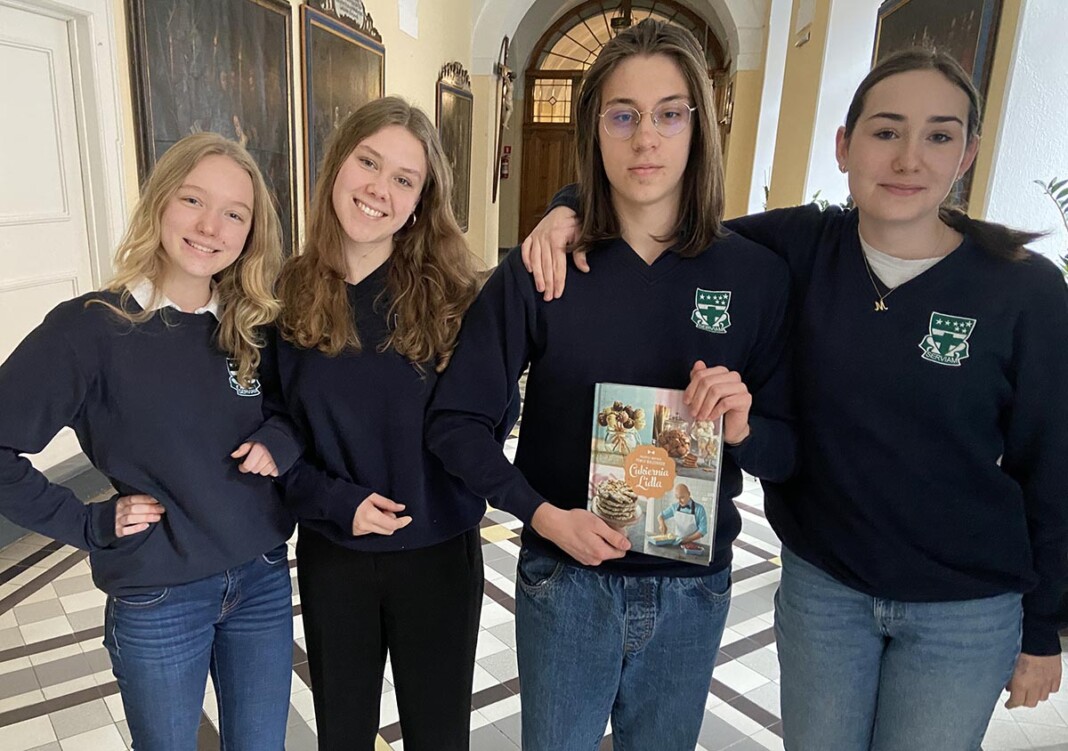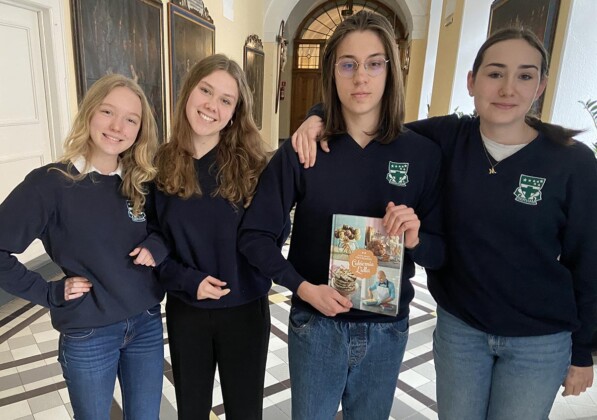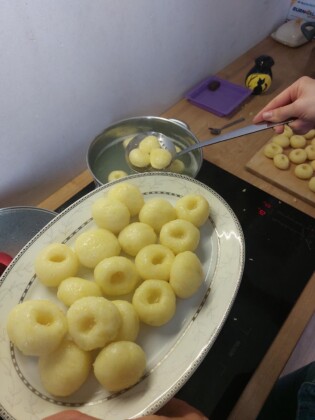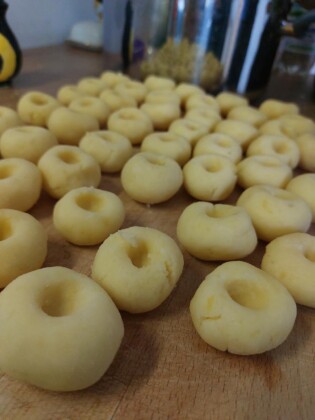Informowaliśmy wcześniej o Książce Kucharskiej Szkół Urszulańskich (Ursuline Global Cookbook), do której współtworzenia zostaliśmy zaproszeni. Oprócz niedawno wspomnianych plackach ziemniaczanych Piotrka i Maćka z klasy 2b, dzisiaj prezentujemy kluski śląskie, które wykonali i opisali uczniowie klasy 3a: Helena Storta, Hania Waszak, Maja Grodecka i Krzysiek Mielcarek.Dziękujemy im za zaangażowanie!
What is the cultural significance of this recipe? Where is it eaten? How? When? Why?
We make and eat our Polish national dishes to maintain traditions and „kluski” is one of the examples. We often cook them together – either with a family or friends because cooking together is a great way to strengthen the bonds. It gives us time to share stories and experiences. It can also be a great way to practice teamwork and cooking skills.
Please list the ingredients required and amounts/measurements for each one
– 2 kg potatoes
– 2 eggs
– bbout 4 cups potato starch
– a pinch of salt
Please write out the steps required to prepare this dish in a numbered list.
Kluski Śląskie (Silesian dumplings)
1.Peel two kilograms of potatoes, cut into smaller pieces and cook in salted water.
2. Cool the boiled potatoes. When they are cool, mash them thoroughly to create a smooth mass.
3. Divide the mashed potatoes into four parts and remove one of them to a separate bowl. Pour potato starch into 1/4pf the bowl with the potatoes left, add one egg and salt and mix thoroughly, so that there are no lumps.
4. Put the dough on a tablespoon and form a ball, and in the middle of it, use your little finger to gently press a hole, but not through the entire dumpling.
5. Put the dumplings in batches to boiling, salted water. After the dumplings float to the surface of the water, wait another 2 minutes and remove them.
6. To check whether the dumplings are ready, you can take one out and check whether there is no raw flour in it.
7. You can pour the dumplings with melted butter or any other sauce you like, e.g. meat or mushroom.
What is the significance of Serviam in your community and how do you live it out?
In our school, students are different, but there is one important thing that connects them all – Serviam which means „to serve”, is our motto. We fulfil its purpose by organizing charity collections for people affected by famine or poverty. Sometimes even empty jars can be given to ursuline sisters, so they can fill it with hot soup for people in need. A small gesture can change somebodys day or even life. But „Serviam’ isn’t about just participating in school collections, but also our internal obligation which we implemet in our daily lives – in our families, among neighbours and friends.
====================
Otrzymaliśmy zaproszenie od dwóch szkół: z USA – Ursuline Academy of Wilmington (Delaware, USA) i Australii – St. Ursula’s College Kingsgrove (Sydney), które współpracują, aby stworzyć książkę kucharską zawierającą przepisy nadesłane przez szkoły urszulańskie z całego świata. Celem tej akcji jest wsparcie szkoły w Battambang w Kambodży, założonej przez Siostry Urszulanki w 2018 roku. Szkoła ta pragnie założyć społeczną kuchnię, skupiającą kobiety z lokalnej społeczności. Więcej o projekcie można przeczytać tutaj.
Aby wspomóc ten projekt, wraz z innymi szkołami, które zgłoszą się do projektu, organizatorzy projektu stworzą Książkę Kucharską Szkół Urszulańskich (Ursuline Global Cookbook). Po ukończeniu książka ta będzie sprzedawana w australijskich i amerykańskich społecznościach szkolnych, a cały dochód zostanie przeznaczony, aby wesprzeć kobiety z Kambodży (ich zdjęcie poniżej). Książki kucharskie będą sprzedawane w wersji fizycznej w USA i Australii, ale dostępne będą także w wersji elektronicznej.
Odpowiedzieliśmy na to zaproszenie i poprosiliśmy uczniów o przygotowanie przepisów według określonego schematu: przygotowanie potrawy, udokumentowanie procesu gotowania na zdjęciach i opisania tego w specjalnym formularzu, nadesłanym ze szkoły w USA.
























